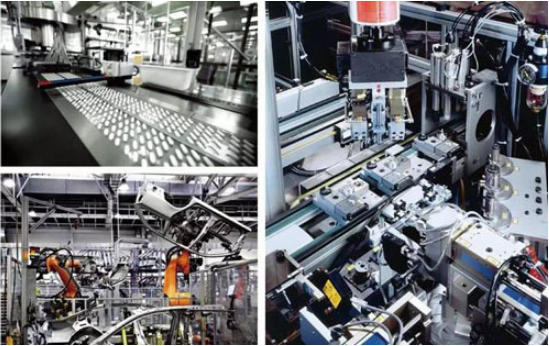An automated, reliable logistics system is the foundation for flexible production. On April 23-27, 2018, the Hannover Fair was held at the Hanover Expo Center. An automated, reliable logistics system is the foundation for flexible production. On April 23-27, 2018, the Hannover Fair was held at the Hanover Expo Center. The CEMAT exhibition held at the same time, the theme is “When Industry 4.0 Meets Logistics 4.0â€, exhibiting a large number of AGV, logistics management software, packaging, warehousing, automation, production logistics, trailers, forklifts, industrial trucks, mobile lifting platforms and so on. “Industry Integration – Connection and Collaboration†is the theme of this year's Industry Fair, which also fully expresses the profound impact and transformation of technology on industry. At the same time, this is the first time this year, the Hanover International Logistics Exhibition (CeMAT) and the Hannover Industry Fair were held in the same place in the same period. The synergy between the two shows the combination of Industry 4.0 and Logistics 4.0. Nowadays, logistics is an important part of smart factories. At this exhibition, a variety of interconnected supply chain solutions are displayed to provide driving force for supply chain digital integration, especially the focus of logistics 4.0. Whether it is Industry 4.0 or Logistics 4.0, IT technology is now an integral part of it. The fields of industry, energy and logistics are undergoing digital integration, the traditional model is being subverted, and various new business models will continue to emerge. Digital production, integrated energy systems, and intelligent logistics solutions will fundamentally change our lives, work, and business models. Industry 4.0 represents the digital and intelligent development of industry. Digitization can make factories more efficient and intelligent, helping the two important components of people and machines in the factory to show the best human-machine collaboration. The combination of automation technology, IT platform and machine learning has pushed Industry 4.0 to a new stage. In fact, digitalization has been deeply embedded in all aspects of the manufacturing value chain. An obvious example is the emergence of a variety of industrial Internet platforms. Through data collection and analysis, it helps to optimize and innovate from design, manufacturing, sales and service. Whether it is Germany, the United States or even China, there are a large number of Industrial Internet provider. Factory workers have direct access to all production and machine related data, and new connections change their role. And with the development of artificial intelligence, especially machine learning allows robots to make independent decisions to provide assistance to workers. In the logistics of manufacturing, digitalization has also become a key factor for success. Logistics 4.0 represents data and intelligence, and is similar to Industry 4.0. Through IT technology management and complex logistics processes, efficiency and flexibility are continuously improved to reduce costs. China's logistics is still stuck in the 1.0 stage, which is simply mechanized displacement. This extensive operation and management mode is obviously not suitable for the current environment. How can we achieve the logistics 1.0 to 4.0 leap? As a representative of e-commerce, Amazon has a large customer base and logistics system. Through the automated means of order delivery, automated tracking, automated inventory management, etc., Amazon has realized the rapid delivery of products, allowing users to experience the ultimate experience. . An important trend presented at this year's show is the widespread use of artificial intelligence in digital factories. Machine learning and intelligent robots will become common tools for workers. A fully automatic electric forklift from ZF, Germany, using artificial intelligence control components was unveiled at the show. The application of artificial intelligence has greatly shortened the time for “human-teaching machinesâ€, and the machine has the ability to choose solutions independently and greatly reduce the error rate, thus improving efficiency and safety. This logistics capability will also gradually emerge in the traditional industry. In the future, the integration of production and logistics will also rise rapidly. The father of Logistics 4.0 once said that logistics is the most decisive factor in the success or failure of any industry operation. Without logistics, there is no industry 4.0. Therefore, the industry 4.0 era is actually the logistics 4.0 era. In recent years, the world's industrial development momentum is rapid, factory technology is increasingly efficient, industrial IT platforms are at your fingertips, and more and more industrial subcontractors are digitally integrated into the customer value chain. Machine learning, machines and robots are now able to make automated decisions. In the modern automated production process, sensor technology is the primary link to achieve automatic detection and automatic control. With these prerequisites, connection and collaboration will become the new bright spot of future smart logistics. Ningbo Autrends International Trade Co.,Ltd. , https://www.vapee-cigarettes.com